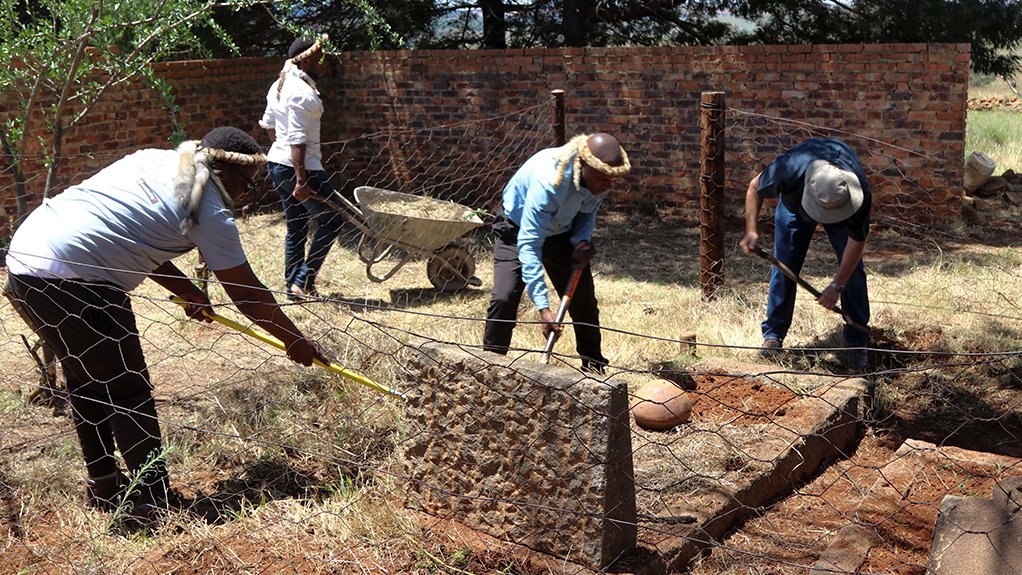/ MEDIA STATEMENT / The content on this page is not written by Polity.org.za, but is supplied by third parties. This content does not constitute news reporting by Polity.org.za.
AfriForum and the Zulu Kingdom’s think tank Indonsa Yesizwe yesterday commemorated the legacy of King Dinuzulu kaCetshwayo by jointly cleaning a cemetery where a number of his direct family members are buried. Personnel from the KwaZulu-Natal Museum and KwaZulu-Natal Archives also participated in the project on the farm Rietfontein, in the district of Middelburg, Mpumalanga. Exactly 110 years ago yesterday, on 18 October 1913, King Dinuzulu drew his last breath on this farm.
The authorities of the Natal Colony imprisoned King Dinuzulu after the Poll Tax Revolt (also known as the Bambata Rebellion) of 1906. When the Union of South Africa was however established in 1910, King Dinuzulu was released from the prison in Newcastle and allowed to settle on the farm Rietfontein. The then Prime Mininster of the Union, general Louis Botha, played a central role in the release of the king. Botha was well acquainted with the king, as Botha, as a young man, was a member of the commando of Commandant Lucas Meijer that supported King Dinuzulu to defeat the Mandlakazi, a Zulu faction, at the Battle of Ghost Mountain (Tshaneni) in 1884.
“Yesterday’s event marked a very important occasion to resuscitate the long-standing relationship between the Afrikaner and the Zulu nations. This relationship was sealed in 1840 when King Mpande invited the Afrikaners to help with the regeneration of the Zulu Kingdom following the rule of King Dingane. Over the years the Afrikaners were to play similar roles in assisting King Dinizulu in his many wars of the 1880s. Through a collaborative initiative between Afriforum and Indonsa Yesizwe, the graves of the children of King Dinuzulu were cleared yesterday. It was indeed a day of reconciliation,” says Prof Musa Xulu, Founder of Indonsa Yesizwe.
“Good relations between cultural communities based on mutual recognition and respect is critical to ensure a free, safe and prosperous future for the children of all cultural communities in southern Africa. There are many examples of good relations between cultural communities in history. We must heed this wisdom from the past, and as the current generation take the decision to follow in the footsteps of our ancestors in this respect. AfriForum is, through collaborative projects like this, building a network of cultural communities that can support each other in the quest to live fully as cultural communities here at the southern tip of Africa,” says Barend Uys, head of Intercultural Relations and Cooperation at AfriForum.
Issued by AfriForum
EMAIL THIS ARTICLE SAVE THIS ARTICLE ARTICLE ENQUIRY
To subscribe email subscriptions@creamermedia.co.za or click here
To advertise email advertising@creamermedia.co.za or click here











